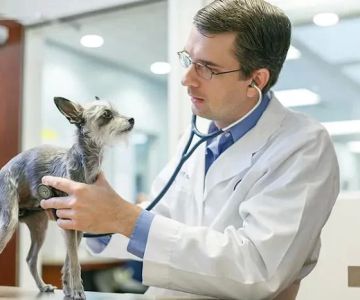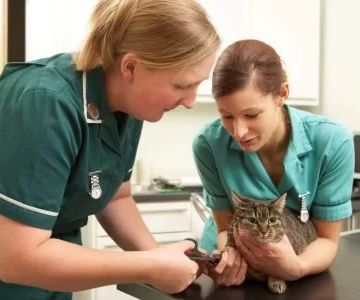The Training and Education Required to Become a Veterinarian: A Comprehensive Overview
- Understanding-the-Educational-Pathway-for-Veterinarians
- Pre-Veterinary-Education-and-Prerequisites
- Vet-School-Curriculum-and-Clinical-Training
- Licensing-and-Certification-Requirements
- Postgraduate-Training-and-Specializations
- Real-Life-Experience-from-Veterinary-Students-and-Professionals
- Taking-the-Next-Step-in-Your-Veterinary-Career
1. Understanding the Educational Pathway for Veterinarians
Becoming a veterinarian requires a significant investment in education and hands-on training. Typically, this journey begins with completing a bachelor’s degree focused on pre-veterinary studies, including courses in biology, chemistry, and animal sciences. This foundational education prepares students for the rigorous curriculum of veterinary school, where theoretical knowledge meets practical skills.
Throughout this pathway, students learn not only about animal health and diseases but also gain critical skills in communication, ethics, and client care. The commitment to this extensive training underscores the veterinarian’s role as a trusted animal healthcare provider.
2. Pre-Veterinary Education and Prerequisites
Before entering veterinary school, prospective veterinarians must fulfill prerequisite courses often required by accredited programs. These typically include general biology, organic chemistry, physics, and mathematics, along with courses in animal biology or zoology.
Strong academic performance during undergraduate studies is crucial, as vet school admissions are competitive. Additionally, gaining experience through internships, volunteering at animal clinics, or working with veterinarians provides practical insight and strengthens applications.
3. Vet School Curriculum and Clinical Training
Veterinary school generally spans four years and combines classroom learning with hands-on clinical training. The curriculum covers anatomy, physiology, pharmacology, pathology, surgery, and diagnostics across a variety of animal species. Students engage in laboratory work, dissections, and simulated clinical scenarios.
In later years, clinical rotations in veterinary hospitals allow students to work directly with animals under supervision, gaining invaluable real-world experience. This period is essential for developing the skills necessary to diagnose, treat, and manage animal health effectively.
4. Licensing and Certification Requirements
After graduating from veterinary school, candidates must pass the North American Veterinary Licensing Examination (NAVLE) to practice professionally. Some states or countries require additional exams or certifications, including jurisprudence tests on local veterinary laws and ethics.
Maintaining licensure involves ongoing education to stay current with advances in veterinary medicine and evolving standards of care, ensuring veterinarians provide the best treatment possible.
5. Postgraduate Training and Specializations
Veterinarians interested in advanced fields may pursue internships, residencies, or board certifications in specialties such as surgery, internal medicine, dermatology, or exotic animal care. This postgraduate training can span several years and requires rigorous exams and peer-reviewed research.
Specialization enhances career opportunities and allows vets to focus on areas of passion, delivering expert care for complex cases.
6. Real-Life Experience from Veterinary Students and Professionals
Emily, a current veterinary student, shares how the intense but rewarding training prepares her daily for challenges in animal care. “Every course and rotation builds confidence,” she explains, “and the hands-on experience is invaluable.”
Dr. James, a practicing veterinarian, recalls his postgraduate specialization journey as transformative: “Focusing on surgery deepened my skills and opened new doors in my career.” Stories like theirs illustrate the dedication and passion that veterinary education demands.
7. Taking the Next Step in Your Veterinary Career
If you’re considering veterinary medicine, understanding what the training and education for a veterinarian entail is the first step toward your goal. Investing in quality veterinary textbooks, online courses, and study aids can greatly enhance your preparation. Explore trusted educational resources and professional tools designed to support your learning journey.
Committed to animal care and equipped with the right knowledge, you can thrive in this fulfilling profession. Start building your future today by researching accredited veterinary programs and gathering the study materials that will guide you through your training and education for becoming a veterinarian.











